The period between graduation and your first day at your first job can be a very interesting experience. For most fresh grads, this is the time when they get to explore all their career options. Some get courted by this and that employer, with different benefits to choose from for each option. Others weigh their choices by turning to factors like proximity from home, commute expenses, long-term growth, and so on.
For one Kiefer Ravena, his post-graduation choices are simple: play full-time for Gilas Pilipinas to represent the Philippines in international competition or play full-time in the Philippine Basketball Association (PBA), where he can follow in the footsteps of his father, former PBA player Ferdinand “Bong” Ravena.
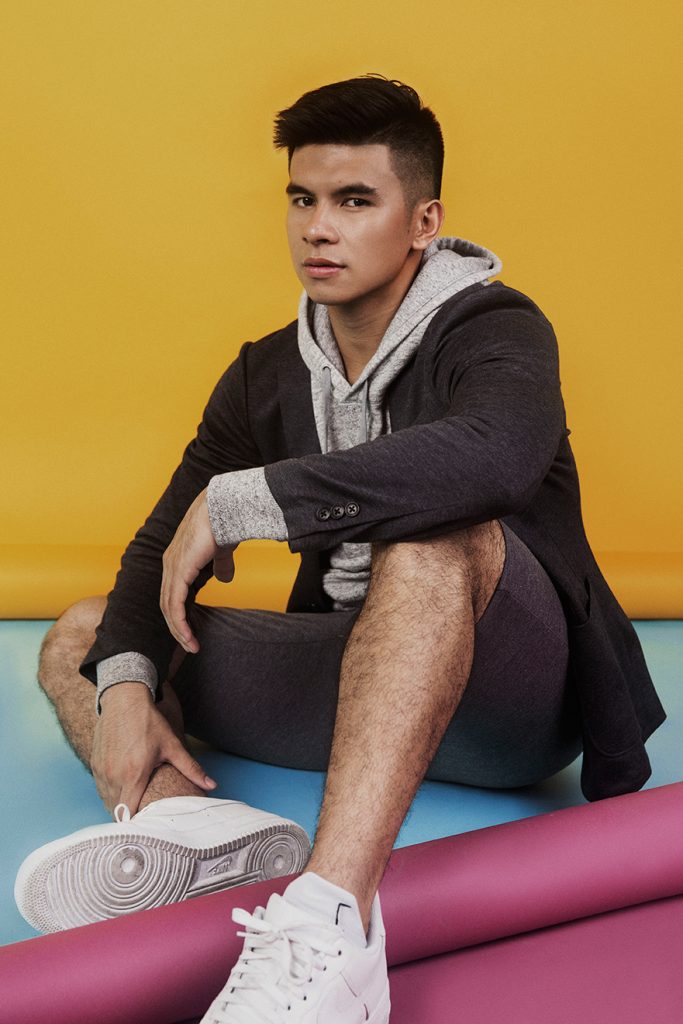
Kiefer’s decision comes at a very interesting time for local basketball, when the local basketball governing body, the Samahang Basketbol ng Pilipinas (SBP), and the PBA are currently working out how to have a set roster that the country can readily deploy for international tournaments, after the FIBA changed its annual tournament dates. Those changes led to the formation of the Gilas Cadets, a squad composed of the Philippines’ top up-and-coming prospects, including Ravena and Gilas 4.0 members Bobby Ray Parks and Troy Rosario. Both the SBP and the PBA have already agreed to let these incoming PBA rookies get drafted to a mother team, which will own their rights while they play for Gilas, only returning to their teams when the SBP releases them to the PBA.
As it stands, Kiefer hasn’t made a definite choice between Gilas and the PBA. While he is eyeing a career in the pros, he understands the value that comes with suiting up for Gilas Pilipinas. “With Gilas, I think that’s the highest level of competition you can already get when it comes to basketball,” he says. “Playing in that kind of team, that’s your end goal besides playing professionally. Representing the country, that’s the highest honor you can already get when you’re a basketball player in the Philippines.”
Every fresh graduate—or anyone being pirated, for that matter—with several job offers on the table knows how nerve-wracking it can get to have to choose between potential employers. Kiefer’s situation is no different, with him calling the situation “life-changing.” He admits to considering how his decision affects not only himself, but his family and his country in the long run. But he acknowledges how having a stable support system around him has been helpful throughout this time. “My dad’s been in the PBA, so I guess that’s one advantage that I have—having a lot of people, knowing what it takes to go there and what’s best for me. So I guess I’m thinking about it really hard, since once you make a decision, that’s it,” he says.
Kiefer’s also had the benefit of watching history play out before him through the first incarnation of Gilas Pilipinas, most of whom took a detour from their professional careers to represent the Philippines first. He sees the opportunity with Gilas as a privilege, saying, “Once you get called, I don’t think you even have to think of playing.”
[pull_quote]“Once you get called [to play for the country], I don’t think you even have to think of playing.”[/pull_quote]
Though that time in local basketball was far from perfect, he recognizes that whatever setbacks players like Chris Tiu and JVee Casio went through were ultimately nobody’s fault. “Playing for the country, I guess people see different things. People have different opinions,” he relates. “The mainstays of the first Gilas Cadets program really blossomed to become great PBA players as well. I guess that’s also a lesson that I took into consideration. Look at them now with the exposure they got. So, you have to see the positive thing about this upcoming program.”
Most young adults facing a decision of this magnitude would be overwhelmed by all the different factors and emotions coming into play. Throw in the experience of not making Gilas Pilipinas’ final 12-man lineup in last July’s FIBA Olympic Qualifying Tournament here in Manila, and you’d have expected a competitor like Kiefer Ravena to have a huge chip on his shoulder. But he doesn’t see that experience as a shortcoming on his part. Rather, he looks at it from a realistic point of view, exuding a calm and rational aura that belies his youth as he reflects on that experience.
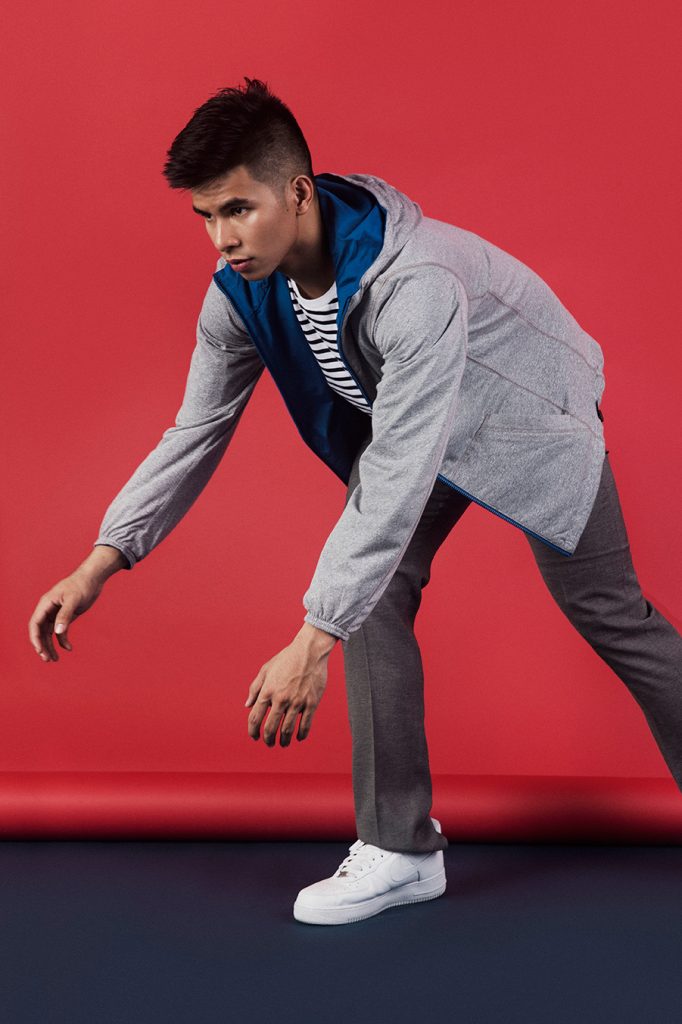
“Sometimes, if you overthink, or if you expect too much, if you don’t get that, you get disappointed. Sometimes, people even say it’s a downfall of their career that they got cut,” he shares. He reveals that it was the first time he got cut from any team that he played on, calling it “a humbling experience [because it was] for the country.” That being said, he understood where he fits in the larger scheme of things. “I’m the youngest on the team,” he says. “Lot of learning to do, a lot of improvement to do. It doesn’t mean that [I’m] not ready. But it’s probably not [my] time yet.”
Having to choose between two jobs is not unlike being courted by two potential lovers. Both situations present their best foot forward, but you won’t really know what you’re getting yourself into until you make a choice and actually jump right in. But the process of choosing—as any beautiful girl will tell you—can actually be fun. Kiefer himself enjoys that pressure and relishes the opportunity, saying, “Not a lot of people get to that stage, so you have to grab that [opportunity].”
Those windows don’t really last very long for athletes. Famous players like Pau Gasol, Manu Ginόbili, and Tony Parker—whose international careers have lasted as long, if not longer than, their NBA careers—are more of exceptions than the norm. And that’s why if Kiefer chooses Gilas, he hopes to stay there for “as long as [his] body can.” He admires Gilas veterans Ranidel De Ocampo, Jayson Castro, and Gabe Norwood, who really did their best to balance their commitments to Gilas, their mother teams in the PBA, and their families.
There’s a deep respect for the game of basketball rooted in Kiefer’s words, something he picked up from the elder Ravena, who spent 13 years playing in the PBA himself. According to Kiefer, the biggest lesson he’s learned from his father is, “It’s already a game, don’t play around,” pertaining to how one shouldn’t disrespect both the game and one’s opponents. “It’s hard, that game. When it’s quarreling with you, it’s hard,” Kiefer shares. “You don’t know if it’ll ever come back to you. That’s what he always reminds us and I guess we carried that on to the future.”
You see it in the way he approaches his rivalry with La Salle Green Archers star Jeron Teng, someone Kiefer grew up with through the game. “It’s actually funny, we laughed about it because sometimes, the game gets overshadowed. Kiefer-Jeron is all you see, but my teammate’s scoring 20 points already!” he laughs.
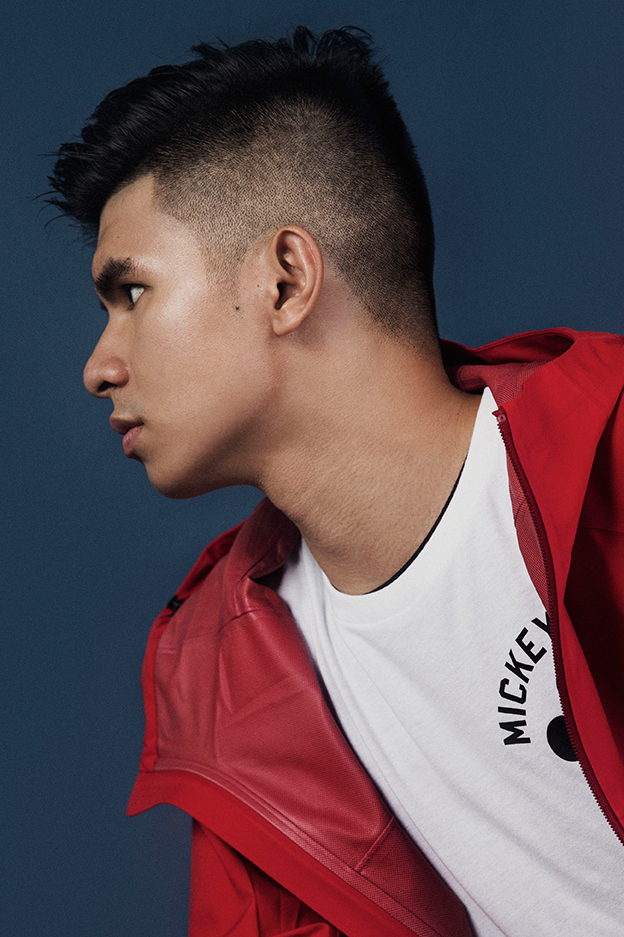

But now that Kiefer’s graduated from the Ateneo, that arc will have to take a break since both he and Jeron will be playing in different leagues, at least for one year. Not that he won’t miss it. “I have something that I’ll definitely miss: competing against one of the best college players,” he admits. “It just brings out the best in you, what to do to improve yourself, that you can compete, and at the same time, he’s my friend. I won’t lose to you just because you’re my friend.”
Turning pro brings about multiple possibilities for Kiefer Ravena’s career. We’ve seen generations of Ateneans and La Sallians eventually uniting as professionals to play for championships in the PBA. Kiefer and Jeron might just follow in their footsteps. “The rivalry stops right there when we become teammates,” Kiefer shares. “Sometime eventually, we’ll be playing with the national team together, so it’s just a rivalry in the sense that there’s always competition between the two of us.” But ultimately, even though he sees rivalries as something he can’t control, it gives him the drive to compete and want to be the best. “There’s some baggage in facing them. That’s your rival already,” he says. “For the shallowest reasons, it’s the definition of a rival, there’s just this angst every time you face them, you really just want to beat them.”
And then there’s the idea of playing for his dad, Bong Ravena, who is currently an assistant coach with TNT Katropa in the PBA. TNT is most likely going to pick in the middle of the first round in the upcoming draft on October 30. Kiefer confesses to being excited about the thought of potentially playing for his dad because for starters, he’ll get to save on transportation expenses—something you may not expect to hear from a pro baller. But more than that, he finds the idea amusing, sharing, “It’s funny because actually, he has never coached me in any team.” He foresees a professional boundary to be established between player and coach, but after that, he says, “it’s back to father and son,” citing the Los Angeles Clippers’ head coach Doc Rivers and his son, guard Austin Rivers, as an example.
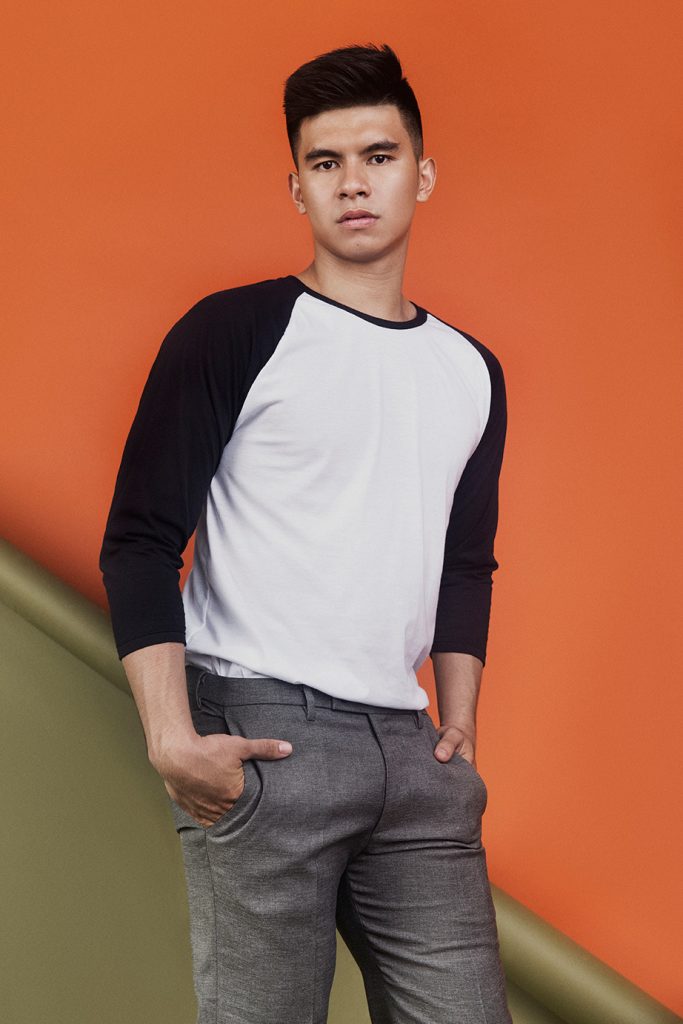
Right now, Kiefer is taking his time and using it to continue improving his game, while having fun in the process. He’s spent several weeks in the U.S., training and even playing in the Drew League (a pro-amateur summer league in the States), in an attempt to get signed by an NBA team. As of this writing, his U.S.-based agents are arranging for him to be invited to work out for several teams there.
By the time you read this, things might have changed. Kiefer might skip out on being part of Gilas 5.0 altogether as he pursues his NBA dream. Or he could be back in the Philippines working out with the national team. Or he could be in line to get drafted in the PBA. The fact that he even has these options in front of him says a lot about how he’s really taking his own advice for other young players to heart: sacrifice, dedication, and discipline—ultimately revealing the maturity in him.
Kiefer Ravena has his entire life ahead of him, and at the same time, he realizes he hasn’t got everything figured out just yet. At this moment, he’s at a crossroad, with a life-changing decision to make in a few weeks’ time, and whatever he chooses, it’ll have a significant impact on Philippine basketball and on his own career. But with a good head on his shoulders, at least he’ll know not to make a big spectacle out of it with Quinito Henson on live television.
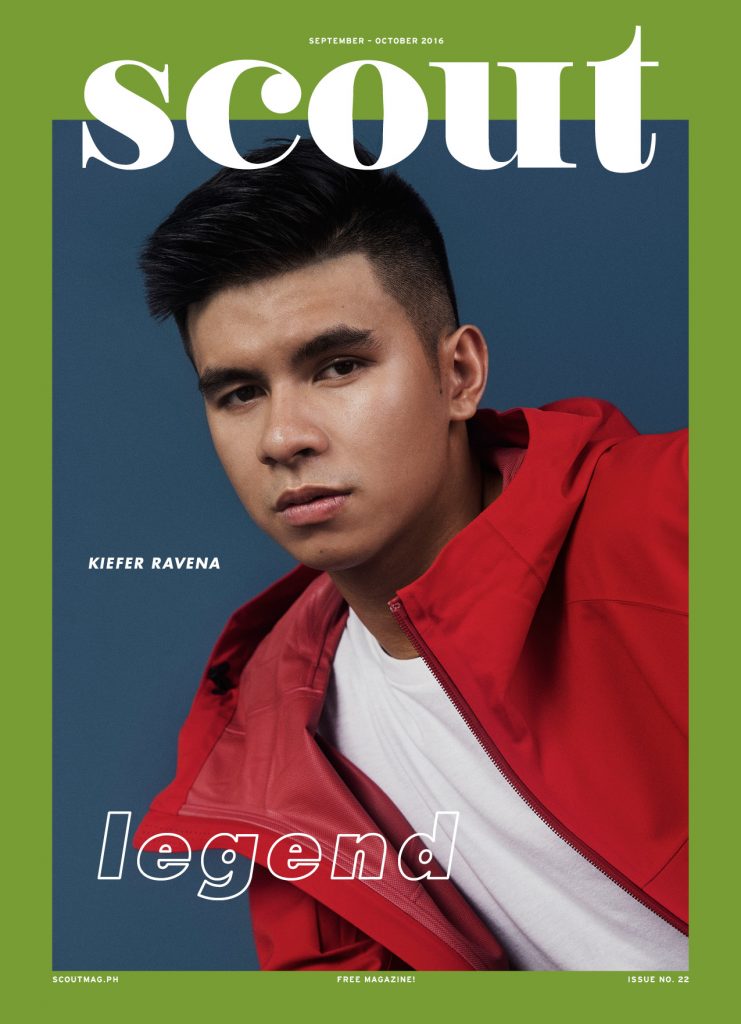
By Stan Sy
Photography by Koji Arboleda
Styling by Vince Crisostomo
Grooming by Bullet Reyes
Stylist’s Assistant Jessie Abarcar
Photographer’s Assistant Miguel Manzanero
This story appeared in the September/October 2016 issue. Check the whole issue at https://inq.news/scoutlatestish


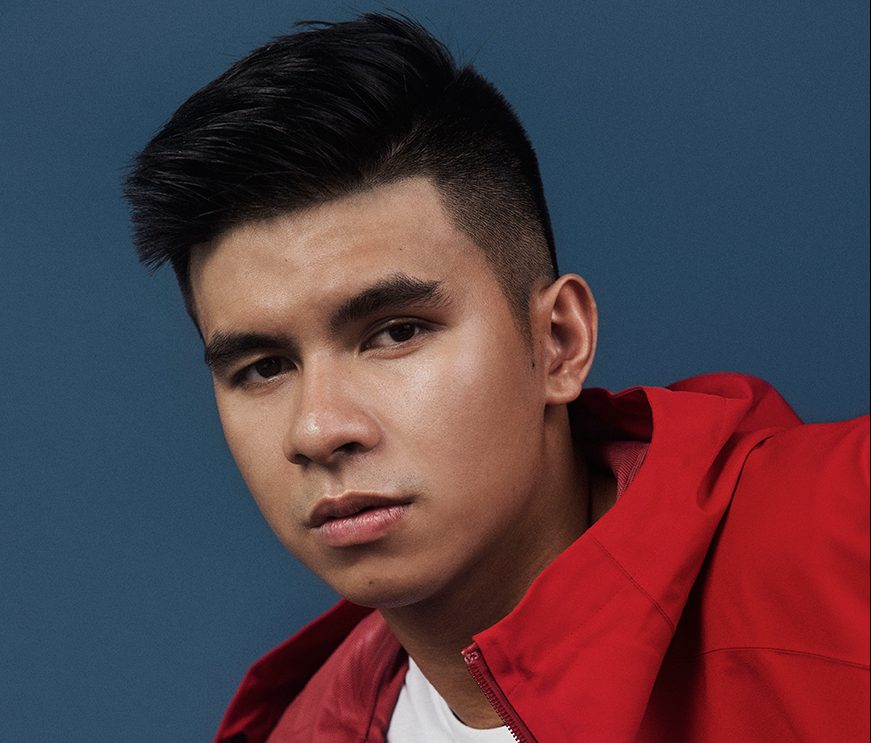













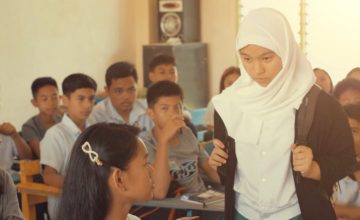
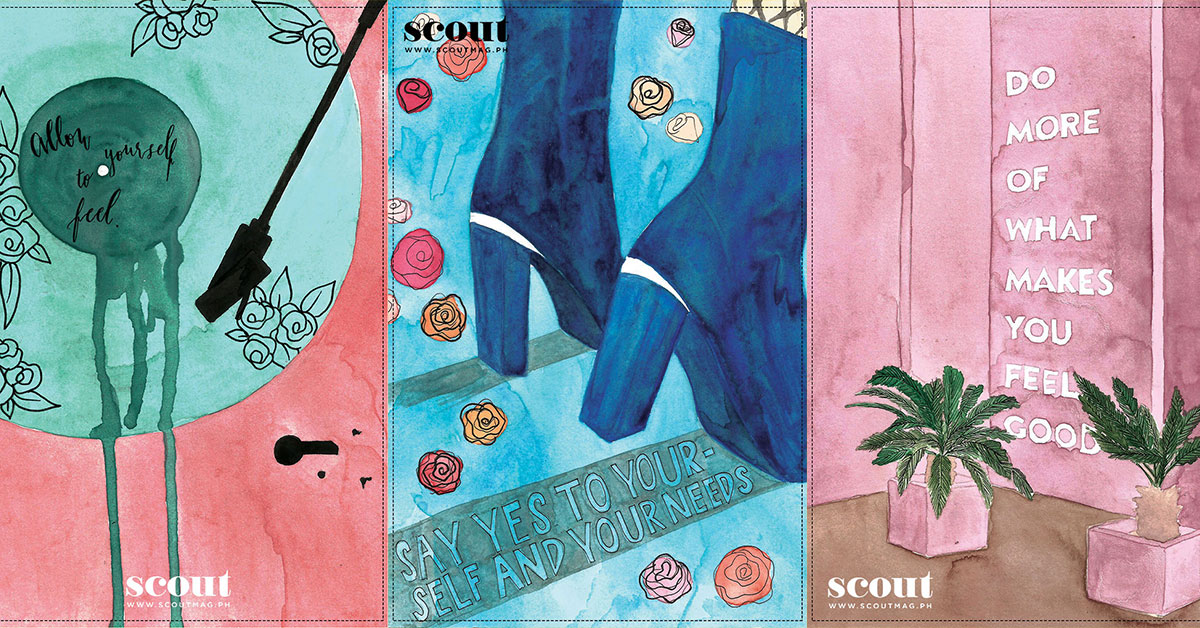







Comments